- Home
- Blake Pierce
Left to Kill (An Adele Sharp Mystery—Book Four) Page 6
Left to Kill (An Adele Sharp Mystery—Book Four) Read online
Page 6
John scratched an ear and pressed a hand against his laptop lid. He seemed grateful to put the files out of sight. “I’m not sure,” he said. “I get where the detective is coming from. The girl isn’t exactly a reliable witness. Maybe she hallucinated.”
“You think she’s been hallucinating for five months?”
John shook his head. Breathed softly, his nostrils flaring from the pressure of the air. “Obviously not. She’s been missing. But as far as others being there. A killer having them, we don’t know. Normally, for us to be called in on a case like this, there tend to be bodies, or multiple victims. Right now, we’re relying on the testimony of an unreliable witness, who is still alive.”
“Barely alive.”
John shook his head. “Either way. It’s a strange case. But like you said, I think we should check out the scene where she was found.”
Adele was grateful partly to be able to leave the small, stuffy motel room. And also, she was grateful to be moving again, to get out of a sitting position. No more hospitals, no more cramped motel rooms. A strange thing, to be grateful a crime scene was in a forest, but there it was.
“Let me get my jacket, I’ll be right there,” she said, calling over her shoulder as John moved from the table to the motel room door.
CHAPTER EIGHT
The stranger gripped the steering wheel of his van, moving at a gentle clip up the highway outside the Black Forest. He had a pleasant smile fixed to his lips, and he was humming softly with the dulcet tunes of classical music emanating from the speakers of his minivan.
Inwardly, though, the stranger’s mind was in an uproar. Looking at him, it would’ve been nearly impossible to detect the emotion. And yet, every few moments, his right hand would grip the steering wheel and twist. His left hand stayed stony. Still, motionless, empty.
“Run away, will you,” he murmured, quietly. He spoke to himself, still through smiling lips. The man was a chameleon. He knew how to play the part, perhaps better than anyone else.
A couple of drivers moved along next to him. These roads were generally empty late at night as people liked to avoid the patches of highway with broken safety lights, following the snowstorm two weeks ago. But during the day, a decent amount of traffic made its way through the forests.
The man, of course, used this road every day. This was his home.
And a home had to be respected. A disrespected home became a house. And a house became a burden. And a burden became something to abandon.
The man’s right hand gripped the steering wheel again, knuckling white against the leather.
Disobedience. So stupid. All children had to be punished. If they weren’t punished, they would misbehave. And there was nothing more damaging to a home than disrespectful kids. He’d grown up knowing that. He cleared his throat at the thought and adjusted the edges of his sleeve. Just above his left hand, he could make out the twisting, melted portion of skin that had healed poorly. The cigarette burns went all the way up his arm, over his chest, down his back. He’d known punishment. And it had made him turn out how he was. Well behaved. The smile constantly fixed to his face. People had often been drawn to him, purely based on his personality.
“You catch more flies with honey,” he murmured softly, reiterating a comment his mother used to say.
For the first time in a while, his smile flashed authentic, and he caught a glimpse of his teeth, well-maintained, pure white in the mirror facing back.
Everything about the man was well-maintained, neat. The interior of his vehicle was clean, no dust or pet hair, or discarded trash on the dashboard. The carpets were all vacuumed and in place. The back seats were immaculate. Outside, the minivan was the same. Washed, clean. He took good care of it. He took a polish to it. Even during the winter. The man knew how to take care of his things. How to take care of himself. And how to take care of his family.
Family. Dammit. That little fucking bitch, how dare she!
He smiled again, stopping the sudden burbling of rage. Anger was unseemly. Anger displayed was costly. No. His right hand twisted, his left hand stayed still. Normally he punished anyone who tried to escape. It sent a message to the others. Without discipline, a home became a house. A house became a burden.
Some of them might have hope now. Hope of rebellion. And rebellion cost everything. No, people had to learn how to respect their parents. To obey.
He had been a difficult child. He knew that. He deserved the punishments he’d earned.
Up ahead, the man glimpsed flashing lights through his windshield.
His eyes narrowed, but only for a brief instant, then his smiled returned, his pleasant expression dropping over his face like wool over a wolf.
He didn’t slow, he didn’t adjust his speed at all. The clean minivan headed straight toward the checkpoint, and he slowed to a halt, two cars back.
He watched the red coupe, two cars ahead, moving away from the checkpoint. The car in front of him paused, and one of the officers leaned in, talking for a bit with the driver.
The man didn’t feel anything. No fear. No guilt. Nothing. They wouldn’t suspect a thing. They never did. There had been manhunts before. Seven of them, from what he could remember. Checkpoints before. More than twenty. He’d been doing this long enough that the sheep didn’t recognize the wolf. The fleece he wore had only become better, more camouflaged.
His smile remained affixed to his lips. His right hand, almost against his will, continued to twist and turn on the steering wheel.
The car in front of him pulled away, spitting some dust, and the man followed.
On either side of him stone barricades lined the highway. Looming, dark green trees stared down at him. The prickling leaves stood sentry. But the man knew the truth. The trees were his friends. The forest was his. These were the trespassers. Their guns, their badges meant as little to him as a child’s toys. The only real authority came in the structure of the family. A true family. Obedience, discipline, respect. The girl had talked to the police—that much was clear. Telling tales outside of the home. Another punishment needed. But at least she wouldn’t be able to lead them back—no, he’d made certain of that. He’d been careful.
Still, he could play the part.
He pulled forward, smiling politely, rolling down his window. The officer looked into the car and examined the man. “Hello, sir. What’s your business here?”
The man twisted his head quizzically. “Hello, Officer,” he said. “What seems to be the problem?”
The officer glanced in the back of the minivan, his eyes scanning the seats. The stranger’s polite, quizzical expression cranked up a notch. Projecting innocence. A dove. He had eyes that others had called kind before. It was amazing how some people trusted others based purely on their physical appearance. The stranger handed his license through the window and watched the officer examine it.
“Sir, we’ve had some incidents in the forest, and we were wondering if you’d seen anything.”
“What sort of incidents?” the man said.
“Missing people.” The license was handed back. It would come up clean; the stranger made sure of that.
The stranger nodded, wincing as he did. Every facial tic, every expression, rehearsed. Nothing about it came naturally. It never had, growing up. At least ten of the cigarette burns had been for smiling at the wrong moment. He had never known quite when to laugh at a joke. But study, over years, over decades, had taught the stranger. He watched the officer’s expression and knew commiseration was in order. And so, like a snake slipping from its skin into a new one, his smile faded to a wince. “Oh, sorry,” he said. “I actually live in these woods. I’ve heard some of the stories. You know, you don’t really want to believe it. Especially with my wife and kids.”
He glanced back in the seat, redirecting the officer’s eyes. Something as small as a glance could tell volumes.
The officer followed his gaze, noticed the child seat in the back of the car. Also well-maintained, also per
fectly situated in the clean seats.
The officer cleared his throat. “You live here?” He hesitated, hinging on a decision. He scanned the interior of the vehicle, his eyes moving over the man’s face, along the vehicle interior, toward the car seat. Then he sighed. “Well, stay safe. Have a good day.”
The stranger smiled once more, ending with a half wince. It was hard to gauge these exactly. But facial expressions didn’t always have to be one or the other. It was the combinations that people responded to most. The man had delighted himself when he first discovered this. A smile could be mixed with a wince. A frown could be reformed into a furrowed brow, projecting concern instead of anger. So many emotions, so delightful. So useful.
The man drove away from the checkpoint, moving past the stopped police vehicles and the barricades.
As for emotions, the man was familiar with only two. One a secret.
The other: rage. His right hand twisted the steering wheel. She’d escaped. Rebelled. Ran away from home. That couldn’t be left to stand. The others would get funny ideas. And while he might not be able to punish her, not yet, he would make sure to punish the rest of them. They would pay for their sister’s crime. But of course, given the chance, he would make sure the sister paid as well. Runaways couldn’t stay away from home for long. Eventually they all came clawing back. And if they didn’t come back, he would have to go find them and bring them home.
The clean, pristine minivan chugged away from the checkpoint, meandering through the winding trails of the Black Forest, heading home.
CHAPTER NINE
The air was cold around them, sending chills down Adele’s brown jacket, eliciting a shiver. She stood at the edge of the caution tape and orange cones circling the cordoned off area. John was at her side, one hand braced against one of the sawhorses that had been brought in. Only a thin trail of traffic meandered through on the other side of the barriers, following the directions of two traffic officers.
Adele looked at the many cars parked on the shoulder of the road up ahead—thirty vehicles on one side of the road and another twenty on the other.
She heard sharp commands, barking voices. She glimpsed orange vests being handed out from beneath the tent. She saw whistles doled out to group leaders, as people were organized into groups of ten. All of them volunteers.
Adele heard choppers overhead and glimpsed two of the birds fly by, low over the trees, sweeping along the forest across from the highway. Dogs strained on leashes, sniffing the various pedestrians and volunteers.
“I still think this is a bad idea,” John said. He frowned. “They will trample over any evidence.”
Adele folded her hands into her sleeves for a bit of warmth. The chill had picked up again, and a thin layer of snow had fallen overnight. The skies above were gray, threatening further interruption.
“Without them, there won’t be any evidence to find,” she said, nodding toward the gathering of people. Nearly a hundred milling souls at this point.
John frowned. “Marshall said many of them are cops, rescue workers…”
“What’s your point?”
“Means some of them aren’t. See them?” He nodded toward a group on the far end, the first leading into the forest. All of them wore orange vests, and the one in the lead, a brown-haired boy with sleek glasses, had a whistle draped over his neck. “Can’t be much older than the victim.”
Adele shrugged. “College-age kids, looking to find one of their own. Can’t blame them.”
Adele heard more orders being barked by the coordinator of the search. The woman had a speaker to her mouth, the black device clutched in a gloved hand. The sound emanated from the squad car parked next to her as she called out, “Attention! We will search in grid patterns. Everyone stick to your team leader, as they’ve been given instructions. If you see anything, have the leader blow a whistle. One of our officers will be to you soon. The choppers overhead can be flagged down in an emergency. Your team leaders have been provided with flares. If you have any questions, please direct them to the nearest officer; also, be careful not to feed the dogs. Don’t pet them either. They’re here for a job, the same as you. Good luck.”
There was a crackle of the speaker being turned off. The front door of the squad car slammed, and the microphone was pushed back through the open window.
Groups then began to move, following the grid pattern set out to them by their squad leaders.
Adele watched as the lead group, the college-age kids, led by the young man with the brown hair and sleek glasses, took to the trees with quick, surefooted steps, eyes on the ground, spread out in a line, arm’s-width apart, moving in sweeping patterns as they began to step through the forest.
“Adele,” John said, hesitantly.
“What? It can’t be called off at this point,” she said. “Evidence or not, I doubt they’ll trample it. Just trust—”
“No,” he said, “it’s not that. Look, is that your dad?”
Adele frowned and turned. She spotted a squat man with a walrus mustache and thick arms. The only one in the group who wasn’t wearing a jacket. He had a white T-shirt on, and a thin vest over it.
Adele stared. Her father glanced over at her and gave a brief nod of recognition. Then he turned, a whistle in hand, and gestured at the nine others behind him to follow as he stepped foot into the forest.
Adele shook her head, blinking at the abrupt departure.
“Guess he’s volunteering,” said John.
She swallowed. “He lives about an hour from here. I bet you he didn’t know I was on the case.”
John snorted. “You didn’t tell him?”
“I mean, didn’t really come up.” She trailed off, swallowed, and said, “To be honest with you, he’s kind of been dodging my calls since I missed Christmas. I don’t think he was thrilled that I stayed in France during that snowstorm.”
John winced sympathetically and turned to look toward the trees where the Sergeant and his group had disappeared, their orange vests fading between the thick, brown trunks.
“Well,” said Adele, “I guess now isn’t the time for chitchat anyway.” With a sour taste in her mouth, she turned from the portion of forest where her father had disappeared without so much as a hello, and ducked under the caution tape, moving toward the cordoned off section of highway.
John followed. “I suppose covering thousands of square kilometers is going to take some time, huh?”
“Let’s see if we can help them narrow it down, shall we,” she murmured. She spoke quietly, but somewhat inattentively. When Adele was at a crime scene, only half of her mind could be used for conversation. The rest, without fail, was already cataloging, analyzing, looking. She scanned the grated asphalt, her eyes flicking to the bent light post above the barrier on the edge of the caution tape line. Three officers stood, making sure none of the volunteers crossed the boundary. A few of them nodded to Adele as she and John moved, and another ignored them completely, his eyes on the trees.
Adele moved over to the most obvious portion of the crime scene. Bloodstains. Bloody footprints, to be exact, in the center of the highway. The snow hadn’t settled on the asphalt the way it had in the forest. Only a thin snowfall, but it had melted on the road. The blood, though, as it had touched the asphalt the night before, had frozen in place. Two stains, no larger than the girl’s feet, had collected the most blood. But there were trickles of droplets leading over to one edge of the forest, and then footsteps, from the accumulated blood, moving toward the bent light post.
John jerked his head. “She went that way with the truck driver.”
Adele murmured, “Means she came from that way,” she said, nodding toward the bloody footprints. “I’m sure the coordinator knows to keep the search localized.”
But John shook his head. “You heard the doctor, she was out here for hours. Could’ve covered an enormous distance. We don’t know if she walked in a straight line.”
Adele hesitated. She saw the sense in it, as muc
h as she hated to admit it. “See this?” Adele said, pointing with the toe of her boot.
John looked, and then dropped into a crouch, his hands on his knees, his body hunched.
“How did you see that?” he said, softly.
“Probably just the girl’s hair,” said Adele.
John gestured at one of the officers at the barricade to bring over an evidence bag. The woman hurried over and helped extricate the single, long, curling brown hair Adele had found.
It was latched between the asphalt, like a trail of river water through dry ground. It had been stuck in place from the blood and frost. Adele thanked the officer, and then moved toward the edge of the forest, away from the bent light post.
She reached the trees and could hear John moving behind her, following, allowing her to take the lead.
She scanned the branches, her eyes flicking along the prickling needles. The detritus hadn’t fared as well as the asphalt. A thin layer of snow had fallen over the ground. It would make it difficult for the search team already; finding a needle in a haystack was one thing. Finding a needle in a frozen haystack was even more difficult. Especially since they didn’t even know if they were looking for a needle.
“See anything?” John asked. Adele scanned the tree line, her eyes flitting from trunk to boughs.
She paused for a moment and said, “No broken branches. Strange.”
John leaned in and also looked. The trail of flecked blood and footprints led to the edge of the road, but beyond, the low branches and brambles and tree limbs seemed undamaged.
“What do you think that means?” he said. “Was she dropped off here?”
Adele shook her head. “No, the doctor said she’d been running through the forest. At least that’s what the wounds on her feet suggest. So why aren’t the twigs and bushes and small branches broken?”
John just stared, looking at the forest, then glancing to Adele, waiting for her to fill in the answer.
“Careful,” she said. “Our girl was careful not to break the branches. She avoided them. See, look,” she said, pointing to a particularly thick portion of brush. “It would be nearly impossible to get through. You couldn’t, you’re too large.”

_preview.jpg) Once Gone (a Riley Paige Mystery--Book #1)
Once Gone (a Riley Paige Mystery--Book #1)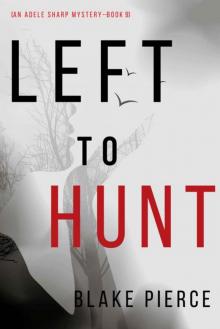 Left to Hunt (An Adele Sharp Mystery—Book Nine)
Left to Hunt (An Adele Sharp Mystery—Book Nine)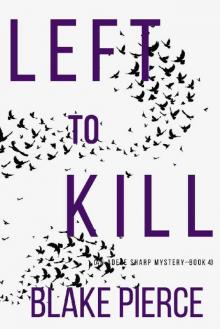 Left to Kill (An Adele Sharp Mystery—Book Four)
Left to Kill (An Adele Sharp Mystery—Book Four)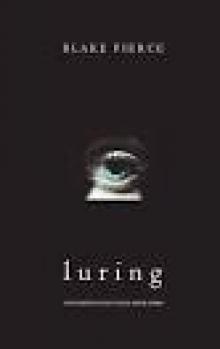 LURING
LURING If She Hid
If She Hid If She Fled
If She Fled Already Gone (A Laura Frost FBI Suspense Thriller—Book 1)
Already Gone (A Laura Frost FBI Suspense Thriller—Book 1) Vengeance in Vienna
Vengeance in Vienna Once Shunned
Once Shunned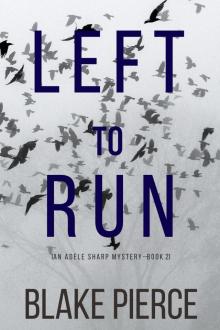 Left To Run
Left To Run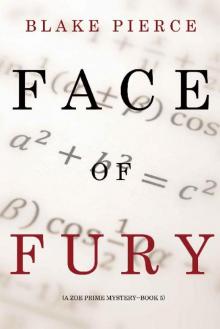 Face of Fury (A Zoe Prime Mystery--Book 5)
Face of Fury (A Zoe Prime Mystery--Book 5) Blake Pierce - Kate Wise - 5 - If She Fled
Blake Pierce - Kate Wise - 5 - If She Fled IF SHE RAN
IF SHE RAN Left to Envy (An Adele Sharp Mystery—Book Six)
Left to Envy (An Adele Sharp Mystery—Book Six) Silent Neighbor
Silent Neighbor Her Last Wish (A Rachel Gift FBI Suspense Thriller—Book 1)
Her Last Wish (A Rachel Gift FBI Suspense Thriller—Book 1) Almost Lost
Almost Lost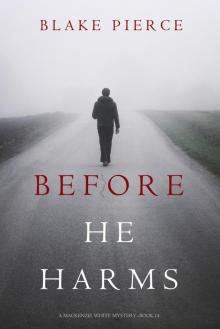 Before He Harms
Before He Harms Murder (and Baklava) (A European Voyage Cozy Mystery—Book 1)
Murder (and Baklava) (A European Voyage Cozy Mystery—Book 1)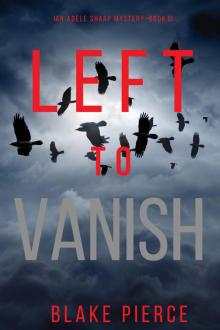 Left to Vanish (An Adele Sharp Mystery—Book Eight)
Left to Vanish (An Adele Sharp Mystery—Book Eight) THE PERFECT IMAGE
THE PERFECT IMAGE The Perfect Affair (A Jessie Hunt Psychological Suspense Thriller—Book Seven)
The Perfect Affair (A Jessie Hunt Psychological Suspense Thriller—Book Seven)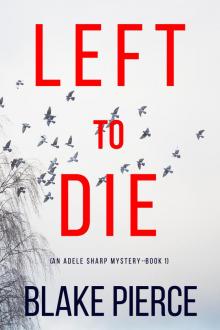 Left To Die
Left To Die BEFORE HE LAPSES
BEFORE HE LAPSES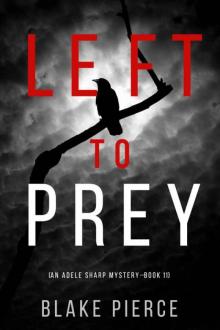 Left to Prey (An Adele Sharp Mystery—Book Eleven)
Left to Prey (An Adele Sharp Mystery—Book Eleven) The Perfect Neighbor (A Jessie Hunt Psychological Suspense Thriller—Book Nine)
The Perfect Neighbor (A Jessie Hunt Psychological Suspense Thriller—Book Nine)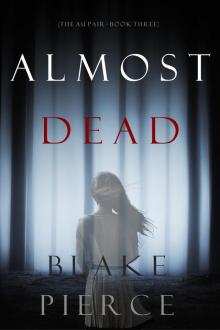 Almost Dead
Almost Dead The Perfect Wife
The Perfect Wife The Perfect Smile
The Perfect Smile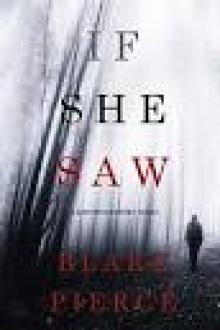 If She Saw
If She Saw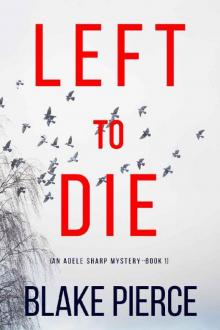 Left To Die (An Adele Sharp Mystery—Book One)
Left To Die (An Adele Sharp Mystery—Book One)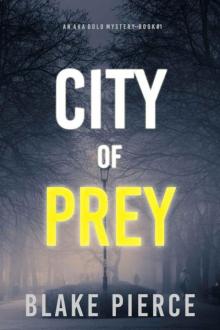 City of Prey: An Ava Gold Mystery (Book 1)
City of Prey: An Ava Gold Mystery (Book 1)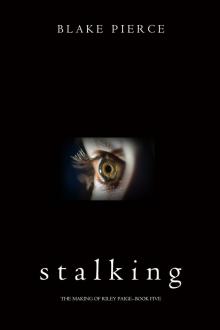 Stalking
Stalking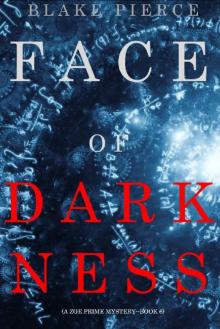 Face of Darkness (A Zoe Prime Mystery—Book 6)
Face of Darkness (A Zoe Prime Mystery—Book 6) The Perfect Mistress (A Jessie Hunt Psychological Suspense Thriller—Book Fifteen)
The Perfect Mistress (A Jessie Hunt Psychological Suspense Thriller—Book Fifteen) Girl, Vanished (An Ella Dark FBI Suspense Thriller—Book 5)
Girl, Vanished (An Ella Dark FBI Suspense Thriller—Book 5) The Perfect Block
The Perfect Block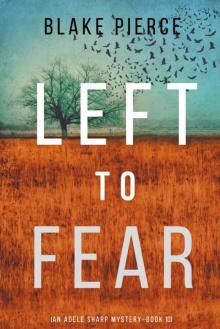 Left to Fear (An Adele Sharp Mystery—Book Ten)
Left to Fear (An Adele Sharp Mystery—Book Ten) Almost Gone (The Au Pair—Book One)
Almost Gone (The Au Pair—Book One) The Perfect Facade (A Jessie Hunt Psychological Suspense Thriller—Book Twelve)
The Perfect Facade (A Jessie Hunt Psychological Suspense Thriller—Book Twelve) The Perfect Affair
The Perfect Affair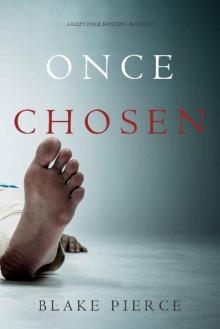 Once Chosen (A Riley Paige Mystery—Book 17)
Once Chosen (A Riley Paige Mystery—Book 17)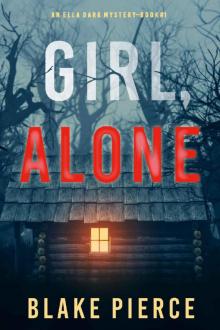 Girl, Alone (An Ella Dark FBI Suspense Thriller—Book 1)
Girl, Alone (An Ella Dark FBI Suspense Thriller—Book 1)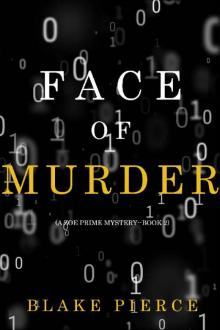 Face of Murder (A Zoe Prime Mystery—Book 2)
Face of Murder (A Zoe Prime Mystery—Book 2) The Perfect Mistress
The Perfect Mistress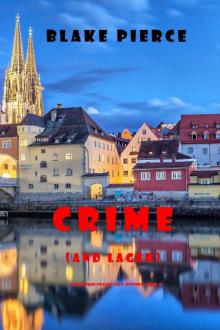 Crime (and Lager) (A European Voyage Cozy Mystery—Book 3)
Crime (and Lager) (A European Voyage Cozy Mystery—Book 3)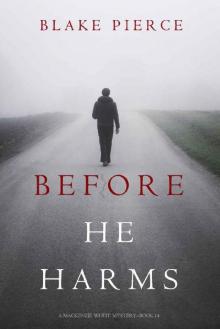 Before He Harms (A Mackenzie White Mystery—Book 14)
Before He Harms (A Mackenzie White Mystery—Book 14)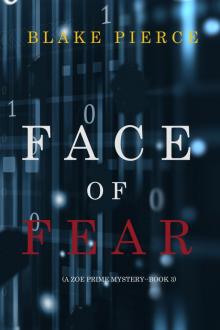 Face of Fear
Face of Fear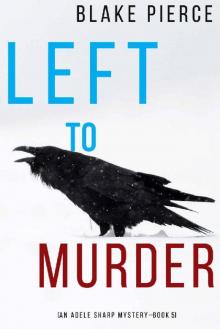 Left to Murder (An Adele Sharp Mystery—Book Five)
Left to Murder (An Adele Sharp Mystery—Book Five)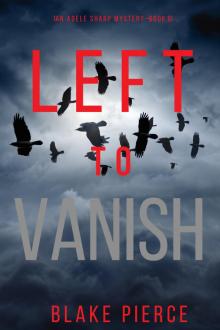 Left to Vanish
Left to Vanish The Perfect Secret (A Jessie Hunt Psychological Suspense Thriller—Book Eleven)
The Perfect Secret (A Jessie Hunt Psychological Suspense Thriller—Book Eleven) The Perfect Deceit (A Jessie Hunt Psychological Suspense Thriller—Book Fourteen)
The Perfect Deceit (A Jessie Hunt Psychological Suspense Thriller—Book Fourteen)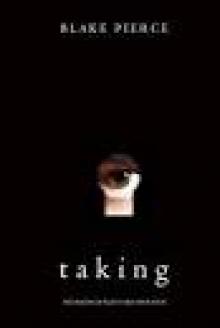 Blake Pierce - The Making of Riley Paige - 4 - Taking
Blake Pierce - The Making of Riley Paige - 4 - Taking Death (and Apple Strudel) (A European Voyage Cozy Mystery—Book 2)
Death (and Apple Strudel) (A European Voyage Cozy Mystery—Book 2) THE PERFECT HOUSE
THE PERFECT HOUSE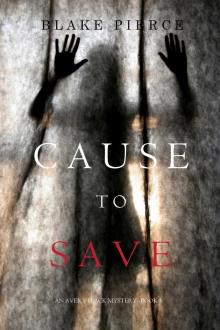 Cause to Save
Cause to Save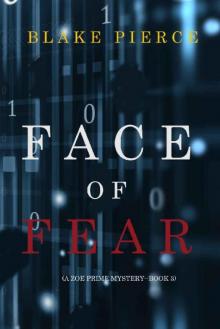 Face of Fear (A Zoe Prime Mystery—Book 3)
Face of Fear (A Zoe Prime Mystery—Book 3)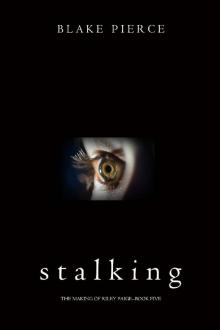 Stalking (The Making of Riley Paige—Book 5)
Stalking (The Making of Riley Paige—Book 5) A Neighbor's Lie
A Neighbor's Lie The Perfect Neighbor
The Perfect Neighbor Once Dormant
Once Dormant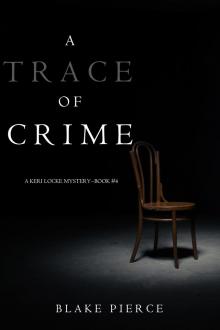 A Trace of Crime
A Trace of Crime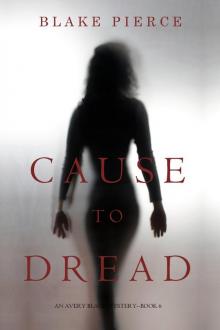 CAUSE TO DREAD
CAUSE TO DREAD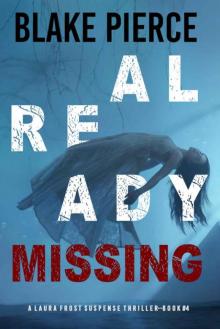 Already Missing (A Laura Frost FBI Suspense Thriller—Book 4)
Already Missing (A Laura Frost FBI Suspense Thriller—Book 4) Waiting
Waiting If She Knew
If She Knew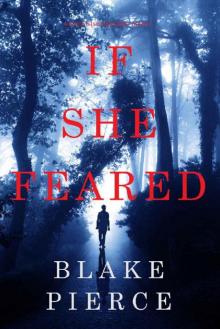 If She Feared (A Kate Wise Mystery—Book 6)
If She Feared (A Kate Wise Mystery—Book 6)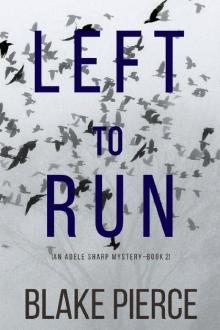 Left To Run (An Adele Sharp Mystery—Book Two)
Left To Run (An Adele Sharp Mystery—Book Two)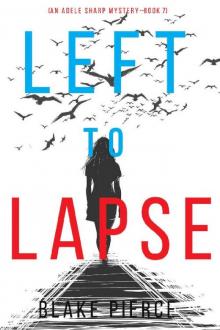 Left to Lapse (An Adele Sharp Mystery—Book Seven)
Left to Lapse (An Adele Sharp Mystery—Book Seven) If She Hid (A Kate Wise Mystery—Book 4)
If She Hid (A Kate Wise Mystery—Book 4) The Perfect Alibi (A Jessie Hunt Psychological Suspense Thriller—Book Eight)
The Perfect Alibi (A Jessie Hunt Psychological Suspense Thriller—Book Eight)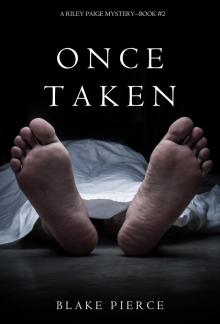 Once Taken
Once Taken Before He Envies
Before He Envies Before He Sins
Before He Sins Mackenzie White 07-Before He Sins
Mackenzie White 07-Before He Sins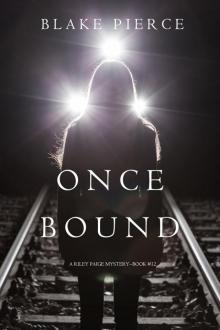 ONCE BOUND
ONCE BOUND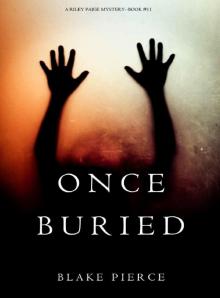 Once Buried
Once Buried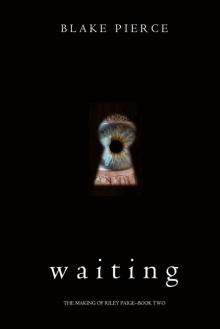 Waiting (The Making of Riley Paige—Book 2)
Waiting (The Making of Riley Paige—Book 2)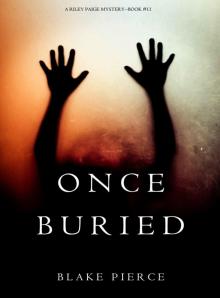 Riley Paige 11-Once Buried
Riley Paige 11-Once Buried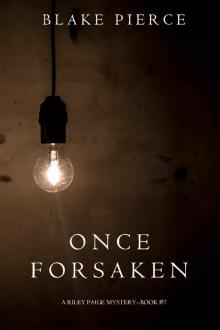 Once Forsaken (A Riley Paige Mystery—Book 7)
Once Forsaken (A Riley Paige Mystery—Book 7) Once Stalked (A Riley Paige Mystery—Book 9)
Once Stalked (A Riley Paige Mystery—Book 9) The Perfect Disguise (A Jessie Hunt Psychological Suspense Thriller—Book Ten)
The Perfect Disguise (A Jessie Hunt Psychological Suspense Thriller—Book Ten)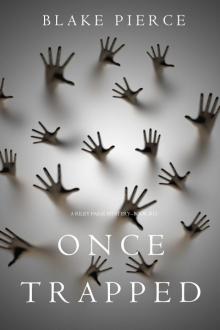 ONCE TRAPPED
ONCE TRAPPED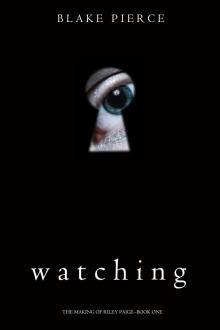 Watching
Watching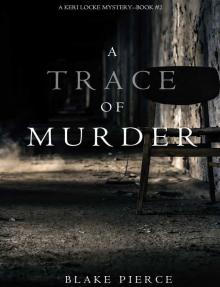 Keri Locke 02-A Trace of Muder
Keri Locke 02-A Trace of Muder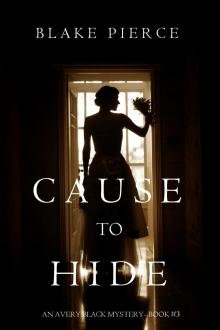 Cause to Hide
Cause to Hide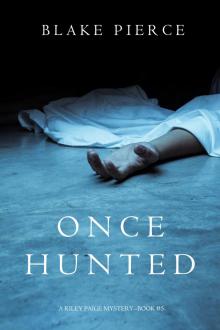 Once Hunted
Once Hunted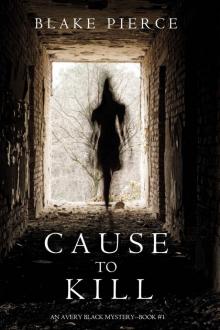 Cause to Kill (An Avery Black Mystery—Book 1)
Cause to Kill (An Avery Black Mystery—Book 1)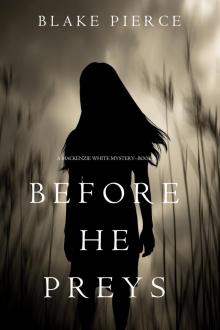 Before He Preys
Before He Preys Once Pined
Once Pined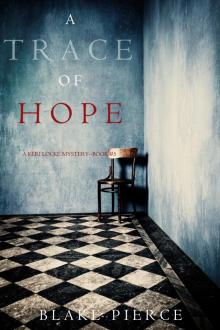 A Trace of Hope
A Trace of Hope Once Craved (a Riley Paige Mystery--Book #3)
Once Craved (a Riley Paige Mystery--Book #3)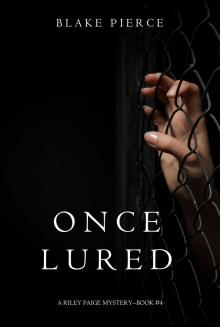 Once Lured
Once Lured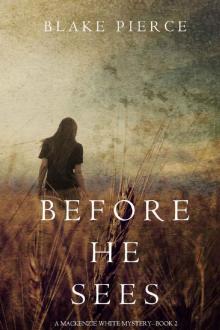 Before He Sees (A Mackenzie White Mystery—Book 2)
Before He Sees (A Mackenzie White Mystery—Book 2)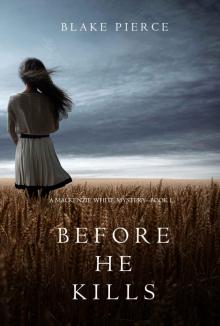 Before he Kills (A Mackenzie White Mystery—Book 1)
Before he Kills (A Mackenzie White Mystery—Book 1)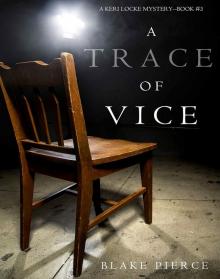 Keri Locke 03-A Trace of Vice
Keri Locke 03-A Trace of Vice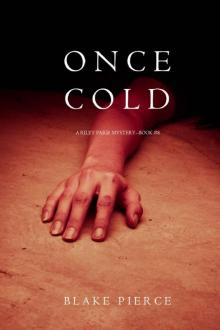 Once Cold
Once Cold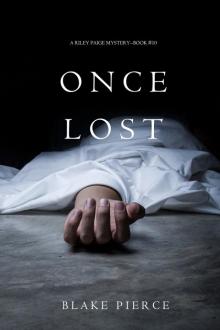 ONCE LOST
ONCE LOST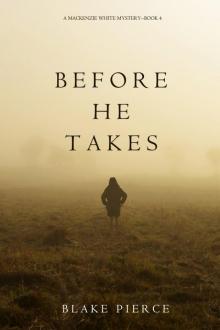 Before He Takes
Before He Takes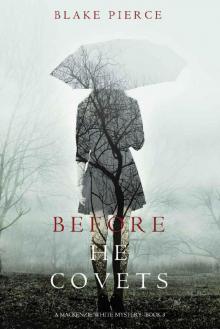 Before He Covets (A Mackenzie White Mystery—Book 3)
Before He Covets (A Mackenzie White Mystery—Book 3) BEFORE HE NEEDS
BEFORE HE NEEDS